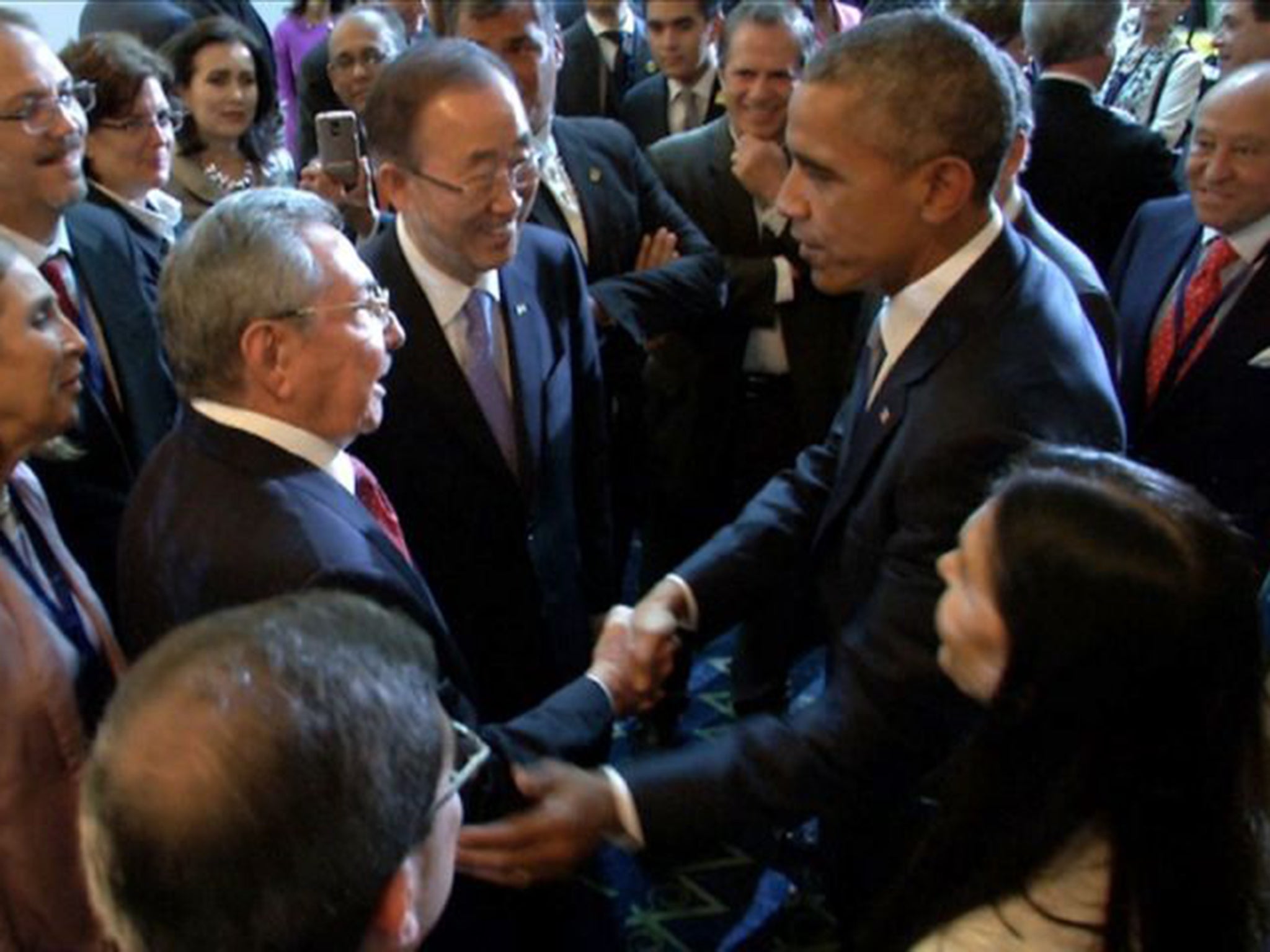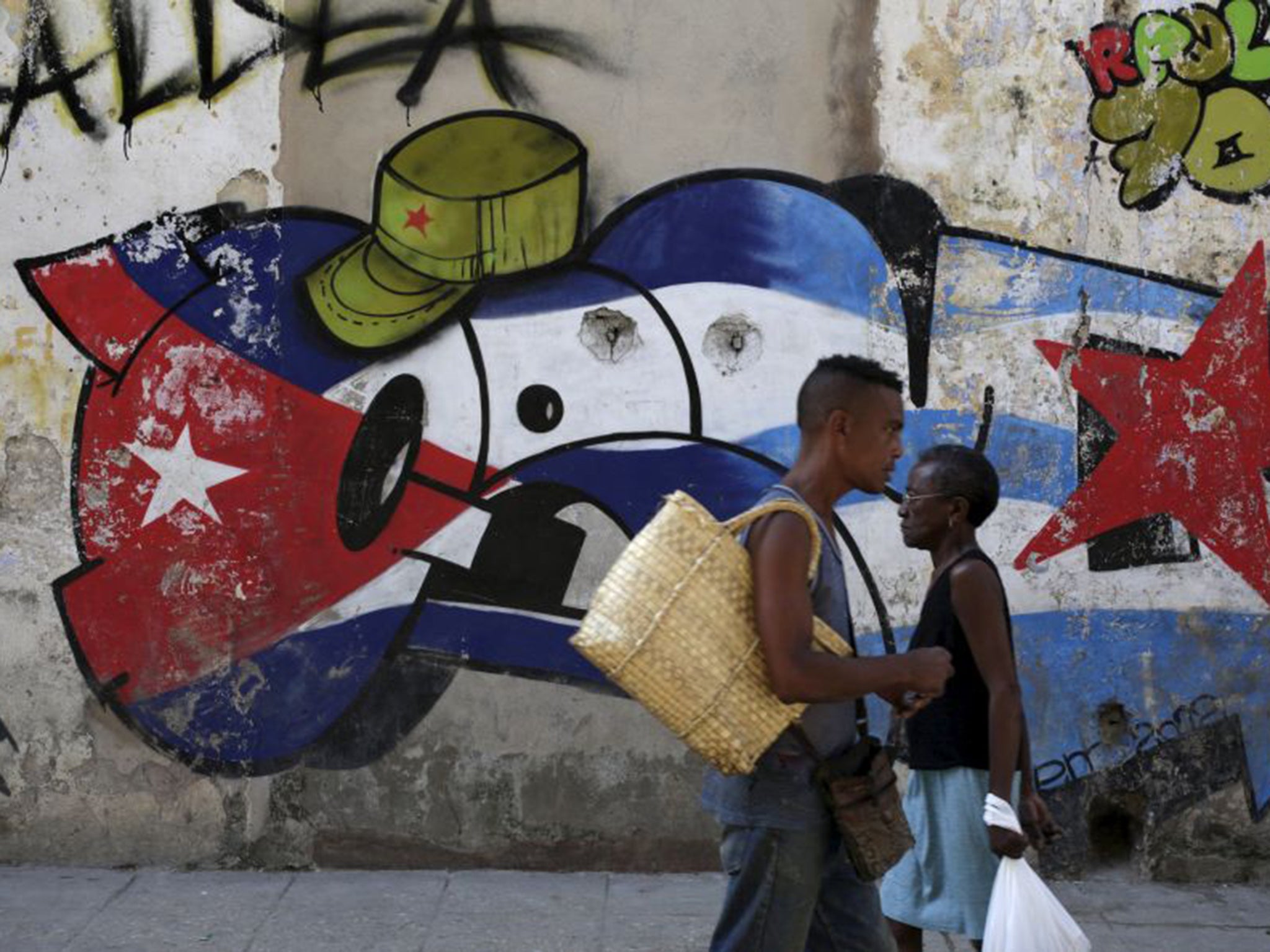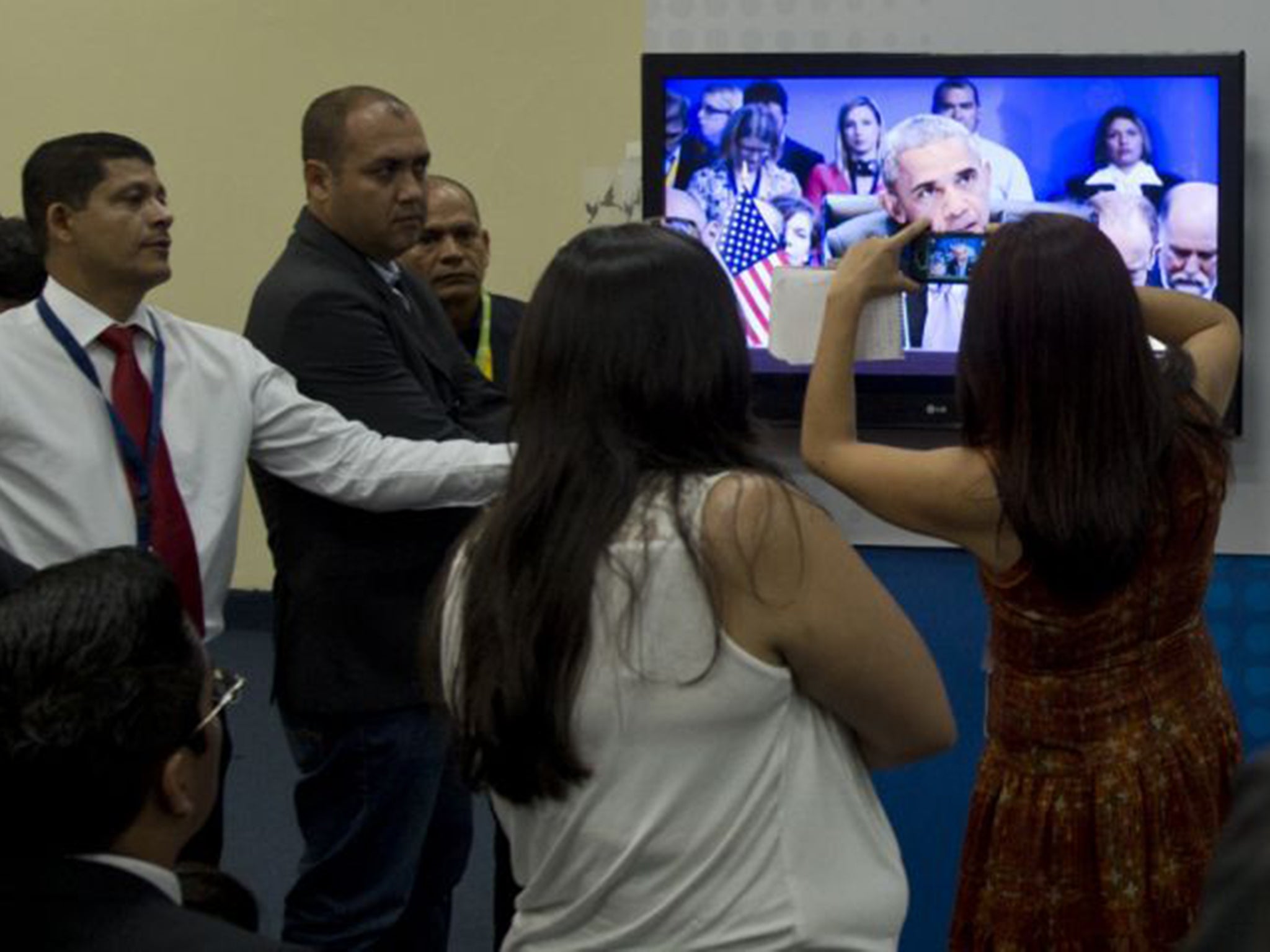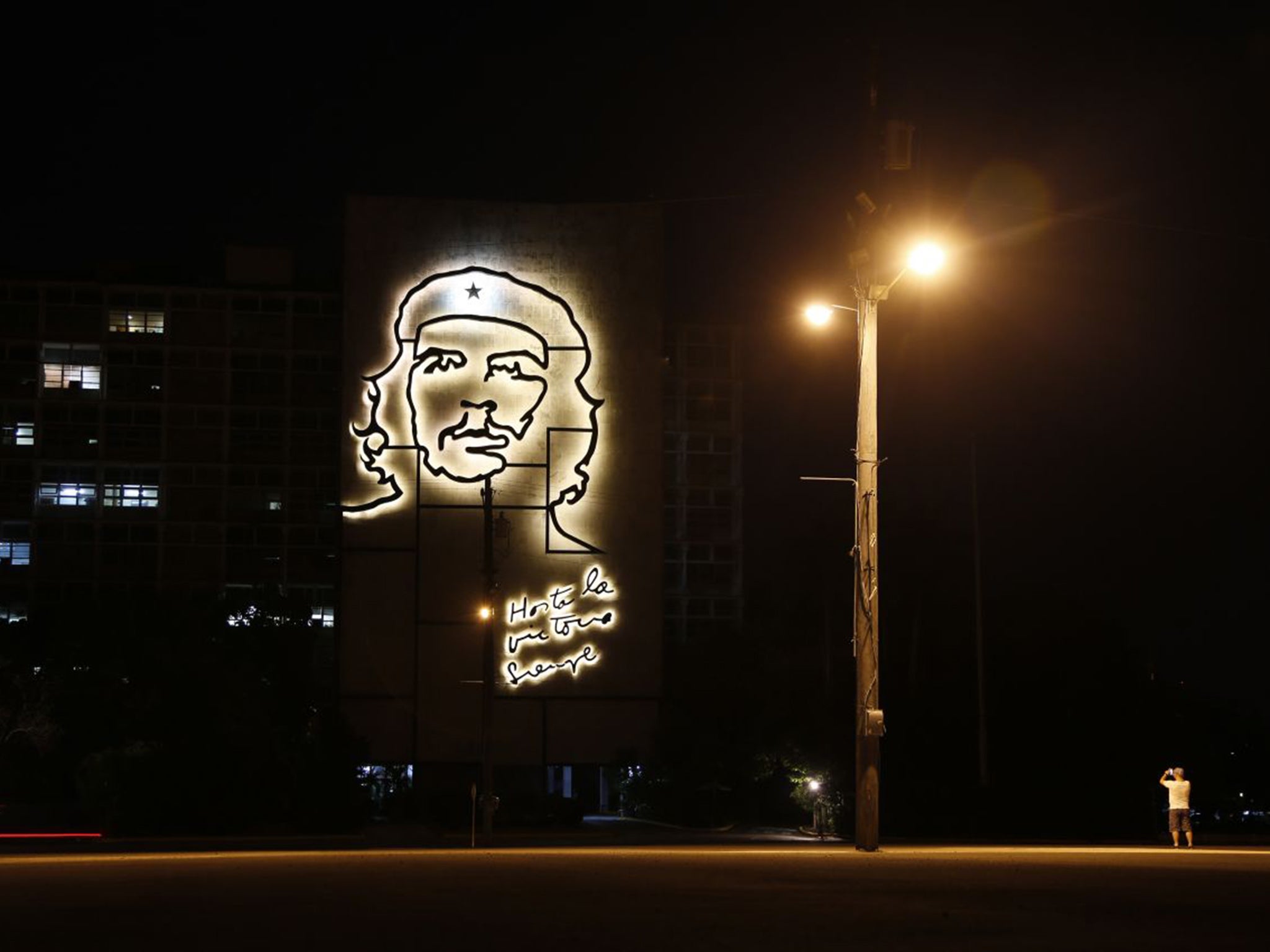Barack Obama and Raul Castro's Summit of the Americas handshake changes Cuba - but not for everyone
David Usborne in Vinales meets one tobacco farmer unmoved by events on the world stage

Your support helps us to tell the story
From reproductive rights to climate change to Big Tech, The Independent is on the ground when the story is developing. Whether it's investigating the financials of Elon Musk's pro-Trump PAC or producing our latest documentary, 'The A Word', which shines a light on the American women fighting for reproductive rights, we know how important it is to parse out the facts from the messaging.
At such a critical moment in US history, we need reporters on the ground. Your donation allows us to keep sending journalists to speak to both sides of the story.
The Independent is trusted by Americans across the entire political spectrum. And unlike many other quality news outlets, we choose not to lock Americans out of our reporting and analysis with paywalls. We believe quality journalism should be available to everyone, paid for by those who can afford it.
Your support makes all the difference.For many across Cuba, the outlook should, theoretically, be one of both hope and anticipation at the thawing of relations with the US. Those feelings were cemented by the remarks of the US President, Barack Obama, and Cuba’s leader, Raul Castro, at an historic Summit of the Americas nearly 1,000 miles away, in Panama City.
As the push for rapprochement between the two nations continued, Mr Obama first declared that the US would not be “imprisoned by the past”. After decades of tension, he said that he was “looking to the future”. He was followed by Mr Castro – appearing at the summit for the first time – who joked that he should be allowed more than his allotted minutes to speak as he had been excluded from the previous six meetings.
Mr Castro called his counterpart an “honest man” who was not to blame for the tensions between their two countries – although that did not stop him from running through a history of grievances against the US and apologising for his emotion when “talking about the revolution”.

The two leaders shook hands before the grand summit opening, before an expected first face-to-face meeting later. For his part, Mr Obama spoke of creating “more opportunities and resources for the Cuban people”. One major group who should see a positive outcome from this is Cuba’s tobacco farmers. Mr Obama recently decreed that Americans permitted to travel to the island will be allowed to bring home up to $100 worth of tobacco product, casting aside one of the most symbolic of all the five decades-long embargoes, the consumption on US soil of Cuban cigars.
The final goal of the thaw, assuming that the US Congress is persuaded to go along with it, will be the lifting of all embargoes. The trade that would then resume would cover commodities such as American beans and meat heading into Cuba, and Cuban nickel travelling in the opposite direction. But no product from the island has been more missed in the US than its cigars. By some estimates, the market waiting for those sweet Cohibas and slim panatelas will be worth as much as $3bn once all the restrictions are lifted.
But Oscar, whose whole life so far has been dedicated to working a farm of 57 hectares – large by Cuban standards – in the tobacco-carpeted western tip of Cuba, near the town of Vinales, does not dare to dream of positive changes. (We cannot give his full name for fear of retribution for his speaking too freely.)
Looking from the outside, it is tempting to romanticise the Cuban cigar – a cigar factory inside what was once an elegant private mansion in Havana remains one of the city’s most popular tourist attractions – but the reality for farmers such as Oscar is one of hard struggle and scant reward.
“He is the new Cuban slave,” his wife, Josefina, says, as the three of us sit at a table inside their tiny wooden home. It sits on the edge of the farm, alongside a traditional A-frame tobacco-drying barn sheathed entirely in palm fronds. “With the manacles and leg-irons, all of it,” she adds. It is not literally true, of course, but it is clearly how both of them see their lives.
For his part, 44-year-old Oscar, who has just finished rolling a perfectly formed cigar for his guest, its last layer of leaf sealed with drips of honey from a plastic water bottle, pushes out his hands to show off the calluses and creases that testify to years of hard labour. He has no tractor to work the soil, only two oxen. A wooden sledge stands by the barn, used every March to haul the plants in for cutting and drying.
The system as it has worked almost since the start of the Castro revolution gives little room for reward for good harvests and only punishment for less good ones. When the leaves have dried, the government sets the price it will pay and hauls the tobacco away. Oscar can keep just 10 per cent for his own use. This year, he received the equivalent of $800, his total income for the year, from which he must pay more than $200 for fertiliser alone.

“It’s difficult, it’s very difficult,” he explains, his eyes cast downwards as a small chicken hops through an open door making for the wooden chest where he stores tobacco for guests. “I know that in Miami right now some millionaire is puffing on tobacco that I have grown here, but I will always be just Oscar, working the land, where nothing will change.”
With the entire Vinales valley designated a World Heritage Site by Unesco, there is a near-constant flow of tourists through the area – for now nearly all from Europe, including Britain. Yet Oscar is forbidden to profit from their presence, either by selling his cigars or giving cigar-rolling demonstrations. It is a ban, by the way, that not every tobacco farmer in the area apparently respects, although he does.
The thought of Americans rejoining the tourist trail here and of US business returning to Cuba gives him little cheer. His first observation is that if they try to buy the land in this verdant corner of the island, he risks being robbed of the only thing he really has, his house. “It will be like before,” he exclaims, referring to the pre-Castro years, when Cuba was almost a US outpost. “I would lose it all, everything.”
Nor will it necessarily bode well for him if the US market is indeed opened again for Cuba’s cigars. Oscar does not believe the government would pass on any benefits to him through improved prices for his tobacco. But it could bring new pressure from the state for him and his neighbours to produce more and more tobacco. He mentions a new law just passed in Havana that allows government inspectors to threaten confiscation of land if certain tobacco production targets are not met.

“People don’t want to work the land any more, but now they are being forced to,” he says, adding that he has an uncle who is 70 years old and too tired to grow a crop every year but who now has no choice but to continue. “It’s very difficult for one man to fight so many lions,” he laments.
Oscar’s only small hope rests on the chance that one day Americans might be able to come to his farm and buy tobacco or cigars from his house. It would be impossible under current laws, but the government is “drowning” with the current economic conditions and so changes have to come somehow, he says.
“All we want is to have better lives, one way or another,” says Oscar, putting stray tobacco leaves back in a plastic bag for when another guest comes by. “If, one day, we can sell to the Americans directly, here on the farm, then perhaps we can start to think about prosperity in the area”.
Join our commenting forum
Join thought-provoking conversations, follow other Independent readers and see their replies
Comments